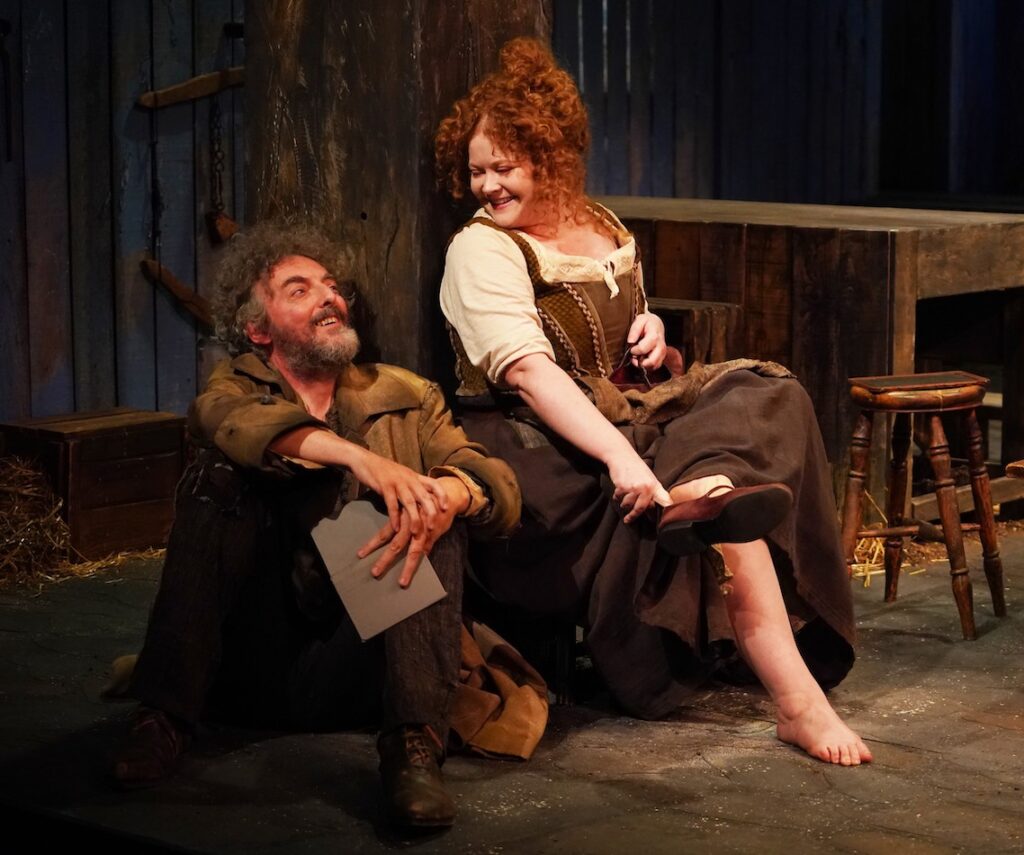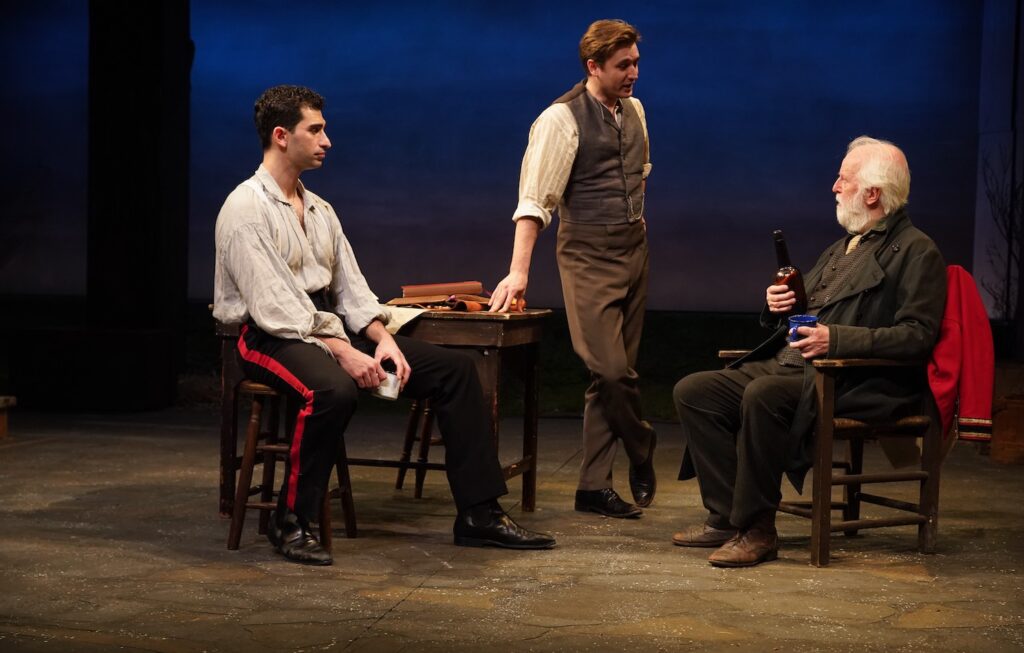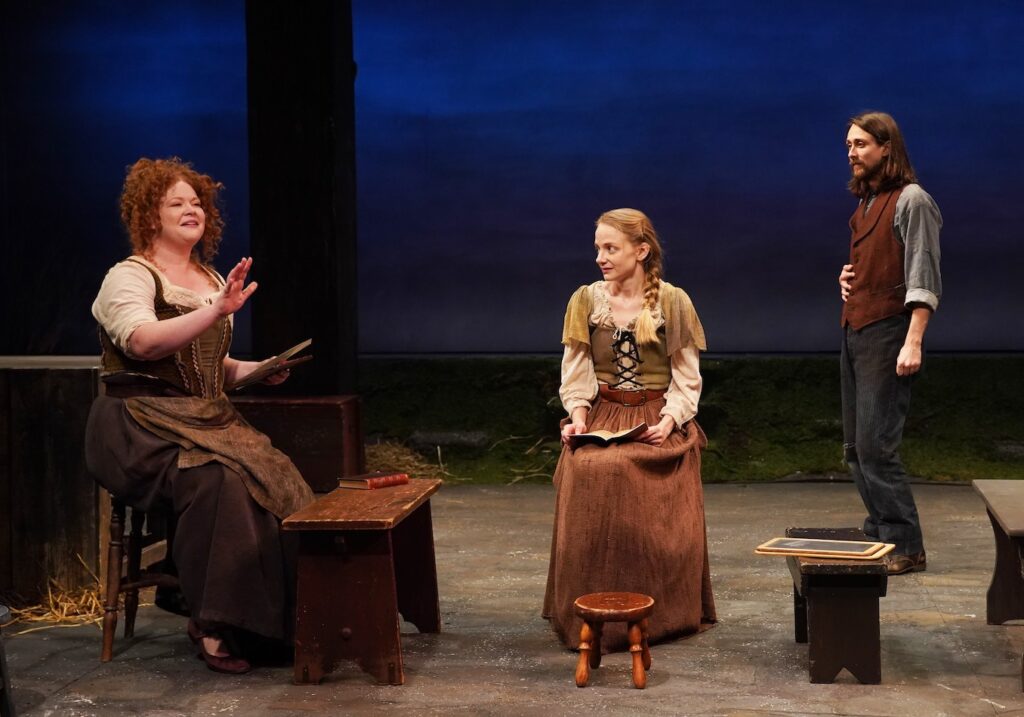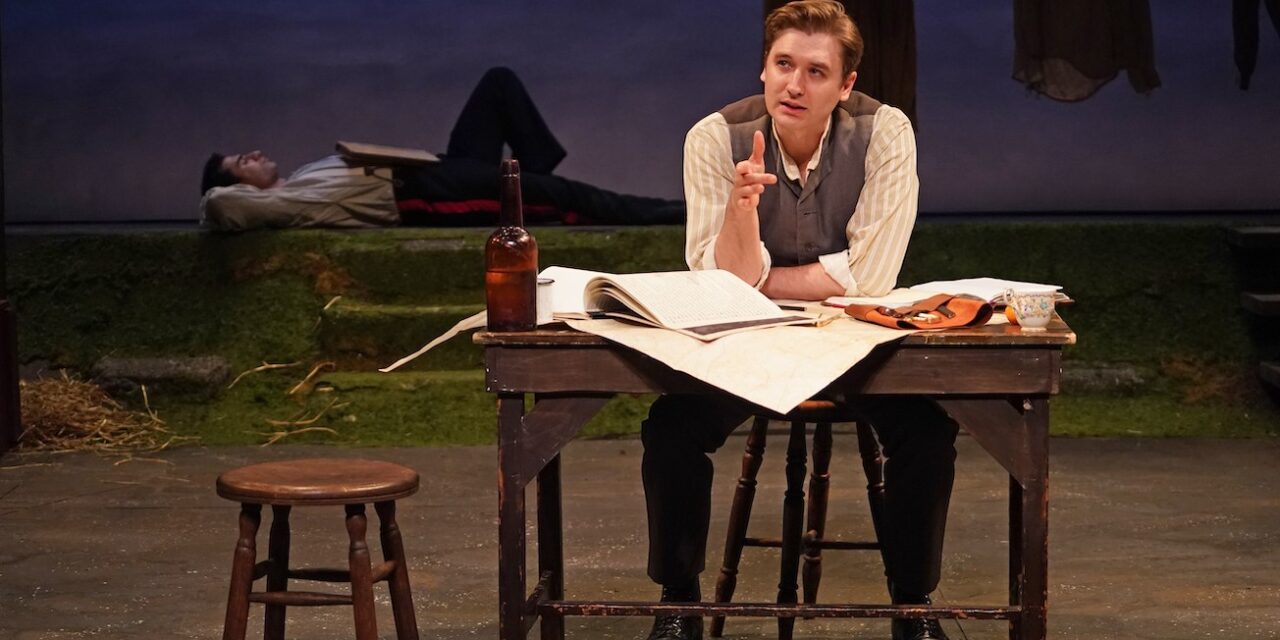By Carole Di Tosti . . .
In his play, Translations, Brian Friel uses language to underscore a thematic message about power, control and domination. As the first play in the three-play series comprising the Friel Project, Translations, acutely directed by Doug Hughes, is currently running at the Irish Repertory Theatre and is a must-see for its revelations about a grave turning point in Irish history.
Friel’s drama is a nuanced masterwork that references the historic conflicts in Ireland between the English and the Irish in the 19th century. The drama’s seminal conflict is reflected through the disparities of language and the problems of cultural and lingual communication that drive the Irish and the English apart to solidify English control. Though the audience understands that both Irish and English characters “speak” their ancestral languages, it is English that is spoken by the actors.
Thus, the play is meant to be viewed as a translation into English of all the languages spoken. This translation symbolizes the relentlessly tightening grip the English had over Ireland, one that eventually leads to increased violence, death and revolution in the 20th century.

The Irish characters speak in their native tongue, and they cannot understand, nor are they understood by, the English who don’t speak the Irish language. The miscommunication between them is humorous to a point, until Friel reveals that the English characters refuse to learn Irish and are, in fact, anglicizing Irish place names in a mapping survey (Ordnance Survey), as a means to culturally colonize Ireland.
Interestingly, the English have co-opted Owen (Seth Numrich), an Irish translator to serve as their go-between to assist in mapping out the territory in the 1833 county of Donegal. Happy to have a job in economically depressed Ireland, 35 years after a failed rebellion and a decade prior to a famine that cut the country’s population in half, Owen is in conflict. Seduced by the money and prestige, eventually, he realizes that the English exploit him for their own agenda, which can only undermine his country and his family.
At the outset, Friel establishes the quaint lifestyle of the village of Baile Beag/Ballybeg, the fictional setting where we meet the students of an illegal hedge school that has been designed to secretly provide education to those of ‘non-conforming’ faiths. The hedge school is run by Owen’s Dad, the boozy headmaster Hugh (Séan McGinley). Hugh, who arrives late and is usually drunk, receives needed assistance from his son and aspiring teacher Manus (Owen Campbell). Manus, Owen’s younger brother, who is lame, is in love with pupil and villager Maire (Mary Wiseman).


Other pupils who drop in for learning are Sarah (Erin Wilhelmi), Doalty (Owen Laheen), Bridget (Oona Roche), and Jimmy Jack (John Keating). In this informal system of learning, all are of various ages and speak Irish dialects, but there is a communal understanding and conviviality. Additionally, Jimmy Jack often speaks Latin and Greek, which Manus and Jimmy Jack translate into the Irish language so the others can learn and understand.
The conflict explodes after Owen visits the hedge school with Captain Lancey (Rufus Collins), and the romantic Lieutenant Yolland (Raffi Barsoumian). However, the import of the English surreptitiously seizing control of Ireland by creating new English maps for “taxation purposes” is not fully appreciated by Hugh or the others in the hedge school.
Friel shows the devastation of how history is lost as Owen and Yolland rename the mouth of a stream. Not only does Owen botch the translation, but the meaning is twisted, and another interpretation is given which nullifies all historical context. That this is done to every landmark, road, stream, river, etc., indicates the extent to which the English want to obliterate what is integral to the soul and identity of the Irish people and the land which they lived on for centuries.
Owen initially dismisses the momentous action he engages in. However, Yolland, who has fallen in love with Ireland and Maire, understands that the renaming represents the destruction of Irish culture and language. He stirs Owen to rethink what is happening.


Chaos ensues when the elusive Donnelly twins sabotage the mapping soldiers in a covert armed resistance. When Manus hears that Yolland and Maire have formed a bond, he becomes infuriated then decides to leave. Captain Lancey announces that Yolland is missing and unless he returns, they first will kill all the livestock, then evict families and destroy their houses. The play’s conclusion ends in foreboding uncertainty, but the violent oppression to come is an inevitability.
Doug Hughes’ direction of Translations is seamlessly rendered. Thanks to the acting ensemble and the creative team, who use minimalism to effect the hedge school and lifestyle of the villagers. The message of Translations is profound and powerfully delivered. Kudos to Charlie Corcoran (scenic design) Alejo Vietti (costume design), Michael Gottlieb (lighting design), Ryan Rumery & M. Florian Staab (sound design & original music).
This is a smashing production that has great moment for our time. It reminds us how usurping nations often force native speakers to give up their language, culture and customs. In disappearing their identity and history, the usurpers hope to gain immunity from accountability.
Translations. Through December 3 at the Irish Repertory Theatre (132 West 22nd Street, between Sixth and Seventh Avenues). Two hours, 15 minutes, with one intermission. www.irishrep.org
Photos: Carol Rosegg
Cover Photo: Raffi Barsoumian and Seth Numrich


















